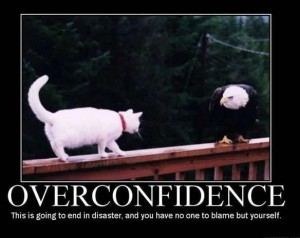Vilifying people for being people…

Bad things happen when you expect the world to exist according to your whims. 😉
Don’t expect heroes, but encourage them.
People are going to be people, it’s great to hope they’re going to be amazing, but you’re setting your self up for disappointment if you expect consistent social acceptance or heroism. It’s great to hope for it. It’s even okay to help people be their best version of themselves, thats what people do for each other right? I guess maybe its the pragmatist in me that is also saying “If you tell them its mandatory they are going to flip out.”
That’s pretty much what happened according to SFGate
About 15 years ago, I came up with this awesome program to drive engagement and improve public perception of the work my team was doing. 2-4 times a year we were going to shine. A few times a year, we were going to, instead of a regular work day, help on Habitat for Humanity builds. You can call it what you want, helping people, teambuilding, character improvement, improving public awareness was my gig. You would think this is a really cool thing. So many good people on our teams, amazing people. But you know what…half of them we’re pretty pissed off. You see some people arent here to do anything but what they want. Its a fact of life. They arent evil though.
The level of consideration it takes to prioritize something that does not directly or tangibly benefit people over their own wont is actually pretty considerable. It’s not bad manners, it’s not poor social engagement…it’s just their prerogative is not aligned with whatever you’re intending. Everyone seems surprised when some employee that makes mad money doesnt want to do something he or she doesnt want to do. Doesnt make them a bad person…just means they dont want to do something.
But what happened on our little Habitat program? My people @#$%ing 100% revolted. No joke. I had to actually sit down and remediate my own @#$%ing program because of it. I lost friends over this, no joke. The program completely flatlined and my awareness and charity program fell apart.
Learning this the hard way wasn’t fun.
Regardless of the workload, the type of work, or the character of the people affected…you will find a boundary you dont want to cross twice even in requesting something small, like asking for help loading office supplies. In new york, you can’t even get on a damn latter to do something yourself, you have to hire a damn porter($40/per hour for dude that climbs ladders) and if you dont you’re open to a business-killing state case against you because porters unions lost wages.
In today’s banter it’s about someone who (as an engineer) doesnt want to have to make food deliveries for a delivery service we ALL use…seems like an abstract but it isnt. People dont want to do what they dont want to do, and I will go so far as to say even if its helping people. So an engineer the makes bank doesnt want to do a delivery for Doordash. Doesnt make them evil, yall.
But now lets say DURING COVID said person that drives almost never gets told they have to go out and deliver cheeseburgers because of some corporate policy. I would say no too. Its not like lives are on the line, and I know damn well it doesnt make me evil.
Fast food isnt an essential service. So corporate policy or not, there is an argument here that maybe its not exactly the time to be telling employees they have to go out into the wild and risk exposure so that someone can get their wings on.
Yes its probably an unpopular opinion, but its not like its someones last meal, we’re talking about a company policy that really has no place in our current social safety outlook.
Having in the past required people to help build houses periodically for families that dont have homes 4 days a year taught me alot about human nature. Stop expecting everyone to be shine like a rockstar. Hope for it YES…but expecting if of them pisses them off.
I write rants like this occasionally under the tag “No More Stupid” if you want more. Dont hold your breath though I dont post often 😉
Be amazing to one another.
-T





